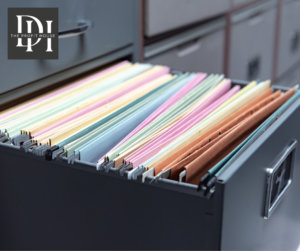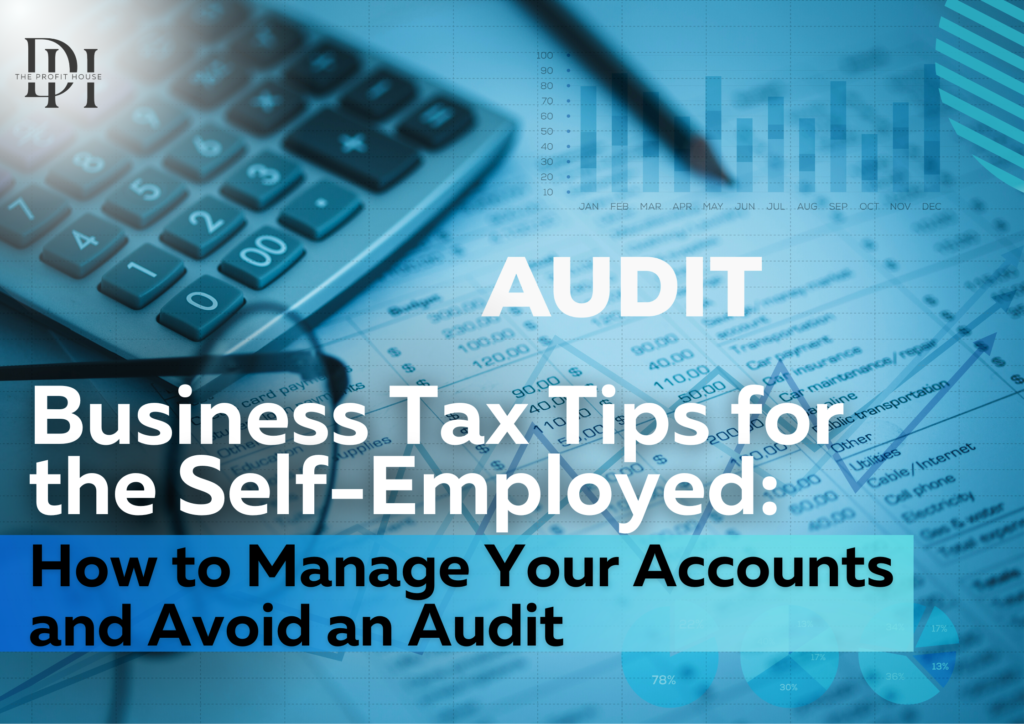As a self-employed business owner, it’s important to be aware of the various tax laws and regulations that govern small businesses. If you’re not careful, you could easily make a mistake on your tax return that leads to an audit. In this blog post, we will discuss some tax tips for managing your business accounts and avoiding an audit. We’ll also provide a few resources that can help you stay up-to-date on the latest tax laws.
Keep Good Records of Your Business Income and Expenses
 This will help you to correctly report your income on your tax return. You should also keep receipts for any business-related expenses that you incur. Good record-keeping is essential for any business owner, but it becomes even more important when you’re self-employed. That’s because you’ll need to accurately report your income and expenses on your tax return.
This will help you to correctly report your income on your tax return. You should also keep receipts for any business-related expenses that you incur. Good record-keeping is essential for any business owner, but it becomes even more important when you’re self-employed. That’s because you’ll need to accurately report your income and expenses on your tax return.
If you don’t have good records, it will be difficult to correctly report your income and expenses. This could lead to an audit. So, make sure that you keep track of all of your business-related income and expenses.
There are a few different ways to do this. You can use accounting software, like QuickBooks or FreshBooks. You can also use a spreadsheet, like Microsoft Excel. Alternatively, you can keep a physical ledger.
Whichever method you choose, make sure that you’re consistent with it. This will make it easier to track your income and expenses over time.
Separate Personal and Business Finances
 One of the most important business tax tips for the self-employed is to keep your personal and business finances separate. This will make it easier to track your business income and expenses. It will also help you avoid commingling funds, which could lead to an audit.
One of the most important business tax tips for the self-employed is to keep your personal and business finances separate. This will make it easier to track your business income and expenses. It will also help you avoid commingling funds, which could lead to an audit.
To keep your personal and business finances separate, open a separate bank account for your business. Then, use this account to deposit all of your business-related income. You should also use it to pay any business-related expenses. This will help you to avoid commingling funds and make it easier to track your business income and expenses.
If you’re not sure how to open a separate bank account for your business, you can check out our guide on how to do it.
Understand the Types of Expenses You Can Deduct from Your Business Taxes
 As a self-employed business owner, you can deduct a variety of business-related expenses from your taxes. These deductions can help to reduce your tax bill. But, it’s important to understand which expenses are deductible and how to correctly report them on your tax return.
As a self-employed business owner, you can deduct a variety of business-related expenses from your taxes. These deductions can help to reduce your tax bill. But, it’s important to understand which expenses are deductible and how to correctly report them on your tax return.
Some common examples of deductible business expenses include:
-Office supplies
-Advertising and marketing expenses
-Travel expenses
-Business insurance premiums
-Accounting and legal fees
For a complete list of deductible business expenses, you can check out IRS Publication 334. This publication provides an overview of the types of expenses that you can deduct from your taxes. It also includes instructions on how to correctly report these deductions on your tax return.
Make Estimated Tax Payments Throughout the Year to Avoid Penalties
When you are self-employed, you’re responsible for making estimated tax payments throughout the year. These payments are used to pay your income taxes and self-employment taxes. If you don’t make these payments, you may be subject to penalties and interest.
To make an estimated tax payment, you can use Form ES. This form is used to calculate your estimated tax liability. Once you’ve calculated your liability, you can make a payment by check or money order.
You can also make estimated tax payments electronically. To do this, you’ll need to set up an account with the Electronic Federal Tax Payment System (EFTPS). Once you’ve set up an account, you can make estimated tax payments online or by phone.
For more information on estimated tax payments, you can check out IRS Publication 505. This publication provides an overview of the estimated tax payment process. It also includes instructions on how to make a payment.
Stay Organized and Keep Track of Changes in the Tax Code to Ensure You’re Filing Correctly
It’s also important to keep track of changes in the tax code. The Tax Cuts and Jobs Act, which was passed in December 2017, made a number of changes to the tax code. As a result, it’s important to make sure that you’re using the most up-to-date tax forms and instructions.
You can find the most up-to-date tax forms and instructions on the IRS website. The IRS also offers a variety of online resources, like tax tips and webinars. These resources can help you to understand the changes in the tax code and how they affect your taxes.
Get Help from a Professional if You’re Not Sure How to File Your Taxes

If you’re not sure how to file your taxes, you can get help from a professional. There are a number of tax professionals who specialize in helping self-employed business owners. These professionals can help you to understand the tax code and ensure that you’re filing your taxes correctly.
There are a few things to keep in mind if you’re thinking about hiring a tax professional. First, you’ll need to make sure that the professional is qualified. You can check the credentials of a tax professional by visiting the IRS website. Second, you’ll need to decide how much help you need. Some taxpayers only need help with their taxes once a year. Others may need help on an ongoing basis. Finally, you’ll need to decide how much you’re willing to pay for tax help. Tax professionals typically charge by the hour but others like The Profit House have a flat fee service, so you’ll need to determine what you can afford to pay.
If you’re not sure where to start, you can check out the IRS Directory of Federal Tax Return Preparers. This directory includes a list of tax professionals who are authorized to prepare federal tax returns. You can search the directory by name, city, state, or ZIP code.
When it comes to taxes, there’s no one-size-fits-all solution. The best way to ensure that you’re filing your taxes correctly is to get help from a professional. A qualified tax professional can help you to understand the tax code and make sure that you’re taking advantage of all of the deductions and credits that you’re entitled to. So, if you’re not sure how to file your taxes, don’t hesitate to get help from a professional.
Final Thoughts
Managing your accounts and staying on top of your business taxes can be daunting, but it’s crucial to avoid an audit. The Profit House is here to help you every step of the way. We offer consultations where we can help you get organized and develop a plan for tax season. Don’t wait until the last minute – book a consultation with us today!
https://calendly.com/dhfinancial/the-profit-house-complimentary-consultation
References:
https://www.chivmen.com/things-small-businesses-can-do-to-avoid-costly-mistakes/

